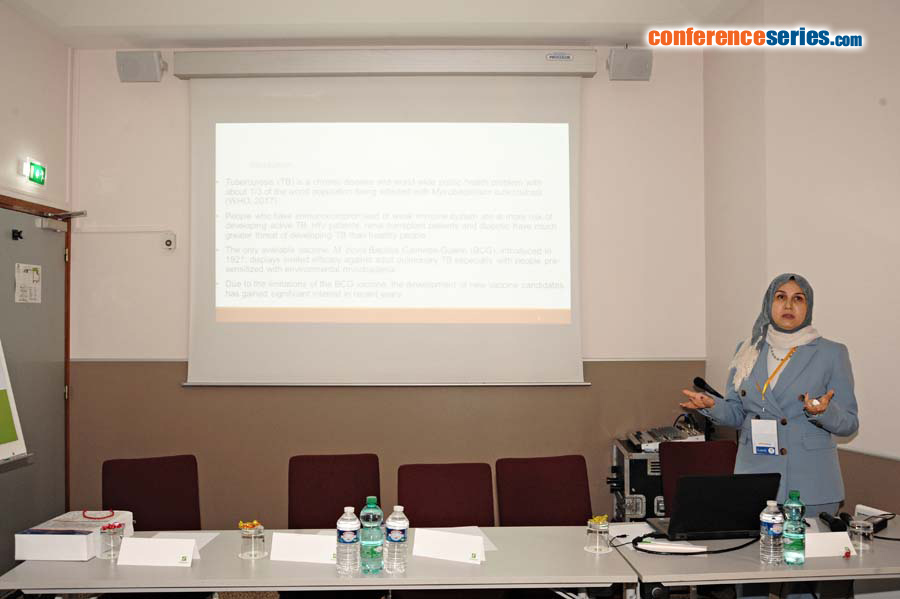
Hanady A Amoudy
Kuwait University, Kuwait
Title: Evaluation of immune response against live recombinant Mycobacterium smegmatis expressing Mycobacterium tuberculosis proteins in mice
Biography
Biography: Hanady A Amoudy
Abstract
Tuberculosis remains a major health problem responsible for 8-10 million new cases and 1.3 million deaths annually. Until today, the only approved vaccine is BCG which has been used since 1921 and provides variable efficacy in adults around the world probably because it is void of some immunodominant key antigens of Mycobacterium tuberculosis. Development of non-pathogenic recombinant constructs delivering Mycobacterium tuberculosis-specific proteins antigens provides the chance to evaluate candidates to be included in diagnostic tools and preventive vaccines. PE35, esxA, esxB and Rv3619 are among the major antigenic proteins of Mycobacterium tuberculosis with vaccine potentials. For this reason, we are introducing these Mycobacterium tuberculosis genes in Mycobacterium smegmatis and evaluating the immune response against these recombinant constructs in mice. Cellular mediated immune response of Th1 type, characterized by production of INF-g cytokine, is associated with protection against the infection. On the other hand, Th2 type of immune response characterized by production of IL-5, Th17 characterized by production of IL-17 and Treg characterized by production of IL-10 are associated with progressive pathological tuberculosis infection. For this, mice were immunized with Mycobacterium smegmatis recombinant constructs and their splenocytes were cultured and assayed for various cytokines to analyze the type of immune response provoked against the introduced antigens. Results from our experiments showed an elevated ratio of Th1:Th2 response in the case of Rv3619 only and not the others.

